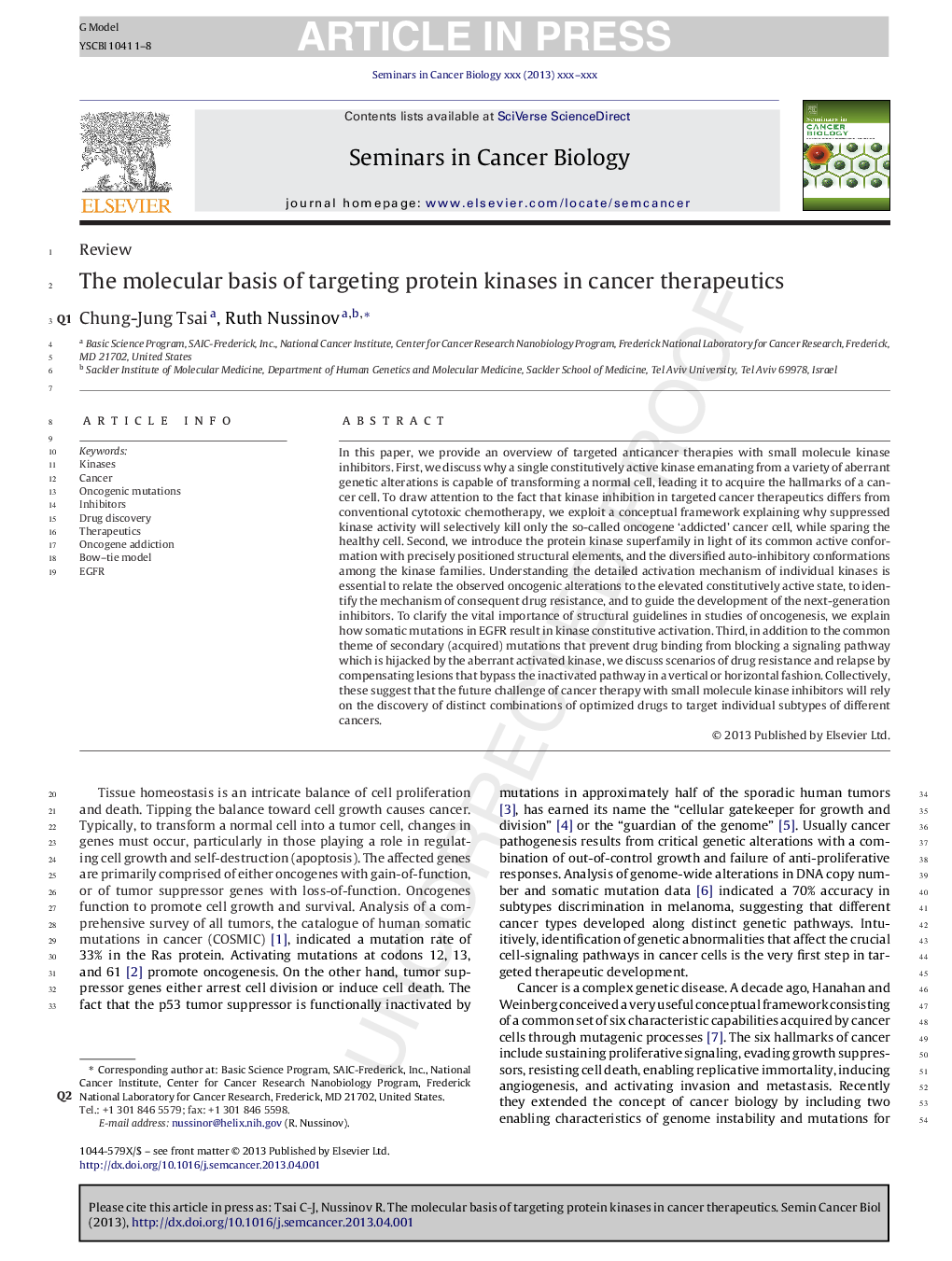| Article ID | Journal | Published Year | Pages | File Type |
|---|---|---|---|---|
| 10845621 | Seminars in Cancer Biology | 2013 | 8 Pages |
Abstract
In this paper, we provide an overview of targeted anticancer therapies with small molecule kinase inhibitors. First, we discuss why a single constitutively active kinase emanating from a variety of aberrant genetic alterations is capable of transforming a normal cell, leading it to acquire the hallmarks of a cancer cell. To draw attention to the fact that kinase inhibition in targeted cancer therapeutics differs from conventional cytotoxic chemotherapy, we exploit a conceptual framework explaining why suppressed kinase activity will selectively kill only the so-called oncogene 'addicted' cancer cell, while sparing the healthy cell. Second, we introduce the protein kinase superfamily in light of its common active conformation with precisely positioned structural elements, and the diversified auto-inhibitory conformations among the kinase families. Understanding the detailed activation mechanism of individual kinases is essential to relate the observed oncogenic alterations to the elevated constitutively active state, to identify the mechanism of consequent drug resistance, and to guide the development of the next-generation inhibitors. To clarify the vital importance of structural guidelines in studies of oncogenesis, we explain how somatic mutations in EGFR result in kinase constitutive activation. Third, in addition to the common theme of secondary (acquired) mutations that prevent drug binding from blocking a signaling pathway which is hijacked by the aberrant activated kinase, we discuss scenarios of drug resistance and relapse by compensating lesions that bypass the inactivated pathway in a vertical or horizontal fashion. Collectively, these suggest that the future challenge of cancer therapy with small molecule kinase inhibitors will rely on the discovery of distinct combinations of optimized drugs to target individual subtypes of different cancers.
Related Topics
Life Sciences
Biochemistry, Genetics and Molecular Biology
Biochemistry
Authors
Chung-Jung Tsai, Ruth Nussinov,
